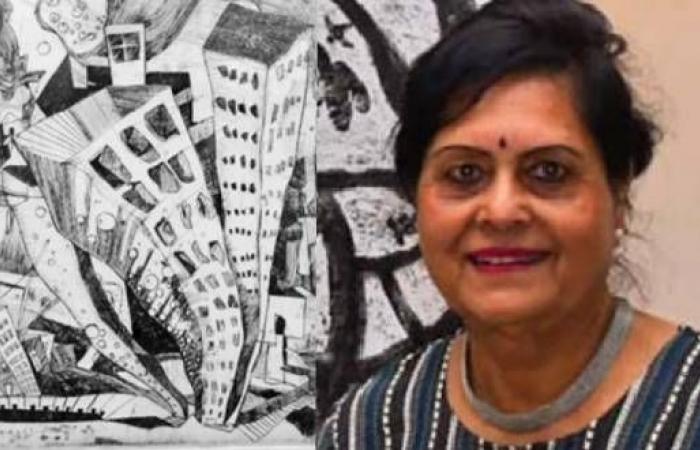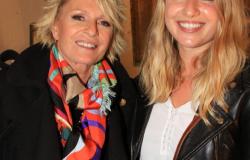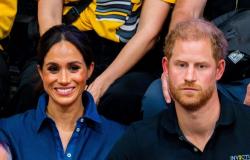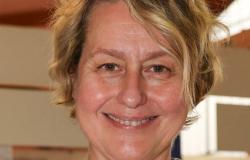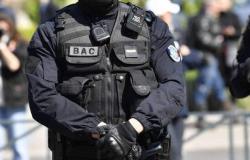Exhibitions of engravings are rather rare. With the diversity of techniques, its codes and its patient work. All this and much more is offered by Atelier 24, a group exhibition at the Imaaya contemporary art gallery in Phoenix. The collective, gathered around Neermala Luckeenarain, is exhibiting the fruit of an engraving workshop until December 6.
What pride for Neermala Luckeenarain. Being among the pioneers of engraving in the Department of Fine Arts at the Mahatma Gandhi Institute. After more than 35 years of full-time teaching, “and if we count part-time work, that’s now 42 years”have the same enthusiasm to share the passion for engraving.
For 15 days, Neermala Luckeenarain surrounded herself with eight artists in her home studio. It was April 13-29 this year, with support from the National Arts Fund. In attendance, a mixture of proven talents and sure values: Arvin Ombika, Deepa Bauhadoor, Ismet Ganti, Mala Chummun Ramyead, Malini Callimootoo Jeewon, Rishi Seeruttun, Veemanda Curpen Seeneevassen and Vishal Auckel.
Different profiles, each with their own way of working. No imposed theme so that everyone’s concerns can be expressed.“The choice of material often determines the subject. The rendering on wood, for example, is less polished than intaglio or drypoint, where you really have to concentrate on the drawing, because you can’t go back.”explains Neermala Luckeenarain.
Facing the entrance to the gallery, Integrity. This work in woodcut, in a perfect circle, “required a month of work”explains the artist. He had to dig the wood with various tools. All around, bees fly, “an insect that works a lot, with discipline. They should inspire us”says Neermala Luckeenarain. If the circular wooden shape is the negative of the work, its matrix, the positive, are the prints on fabrics, for a journey towards integrity which invites us to “do not give in to corruption”.
Neermala Luckeenarain’s favorite theme: the condition of women. With Flowers of the world, she evokes women as a symbol of resilience. “She’s not a doll anymore.” Another recurring element in his universe: the tea bag. “You don’t know how strong the tea is until you put it in hot water. We can compare this to the strength of women.”
During the workshop, the artists took turns experimenting with xylography (engraving on wood), intaglio and drypoint (engraving on a metal plate), chasing, and screen printing (stencil printing). Result ; one work produced on site, another reworked at leisure.
Why Atelier 24? This workshop took five years to come to fruition, “because I finished my doctorate, then I did research work with Reynolds Permal, Lizie’s blind person, so he could paint”explains Neermala Luckeenarain. It was in 2017-2018. A workshop with blind people followed by an exhibition. “As we have arrived in 2024, the exercise is called Workshop 24.”
Neermala Luckeenarain remembers that during her university studies in Mumbai, “my teacher told me why choose painting? To opt for specialization in engraving to take this technique to Mauritius. That’s what I did. At the time, Moorthy Nagalingum, director of the Fine Arts department, practiced the elementary processes..
It was in 1982 that Neermala Luckeenarain joined the department. The teaching of this discipline took off with the acquisition of a press. The university degree was offered starting in 1995. “I helped set up the course content in Mauritius and Reunion. I hope that those who take over will contribute to the progress of this sector.”

